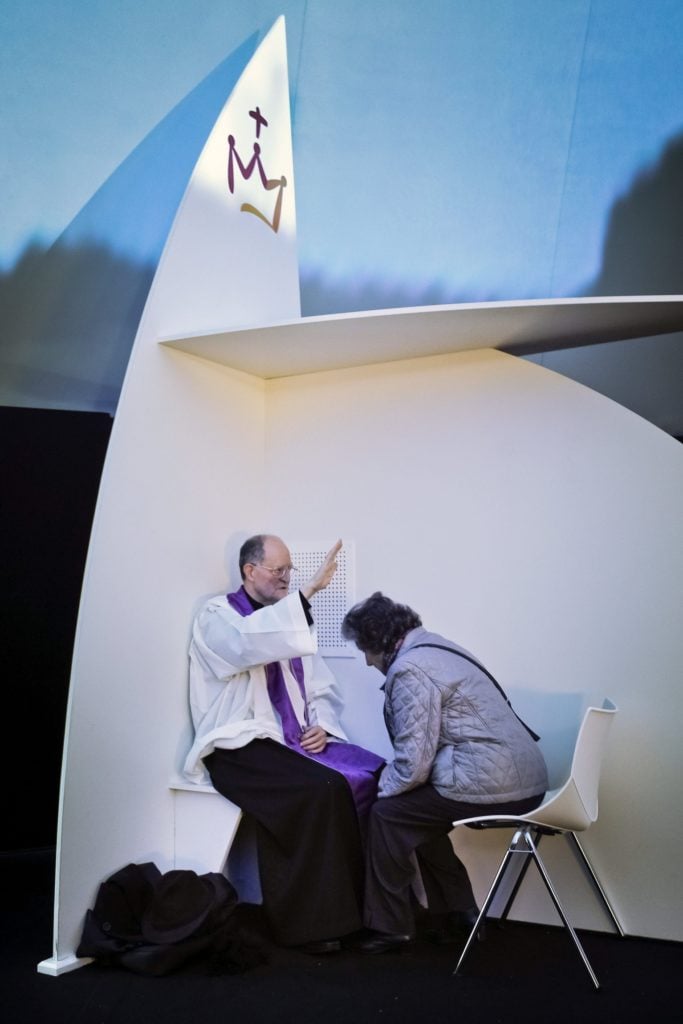
You might remember that four years ago, when Islamic State militants invaded the Iraqi city of Mosul, the Christian inhabitants were given three options: conversion to Islam, paying the jizya tax, or death. The jizya was an annual fee levied upon non-Muslims living in Islamic countries and, while its rate was not specified in original texts, in recent times the amount was set so high that it became impossible to pay. Most Christians fled.
This October, the state of South Australia will impose its own religious tax on Catholics and others who hold to the sanctity of the seal of confession.
Quietly passed last year under the then- Weatherill government and effective from October 2018, the Children and Young People (Safety) Act 2017 (SA) removed the exemption from mandatory reporting laws for anything heard in religious confession. Ministers of religion – who have long been mandatory reporters under South Australian law – and the people to whom they minister, will now lose any protection for the sacramental seal.
The changes, similar to those made last week in the Australian Capital Territory and reported in The Catholic Weekly, have been marketed to the public as being a response to the Royal Commission into Institutional Responses to Child Sexual Abuse, and a measure aimed at protecting children from horrific sexual harm.
But the laws go much further than just child sexual abuse.
In addition to being required to report disclosures or risks of child sexual abuse heard inside or outside the confessional, priests will be required to report any actual or likely harm to a child of a kind from which children are usually protected. The law goes on to say that this includes, but is not limited to, physical or psychological harm caused by action or omission, sexual, physical, mental or emotional abuse or neglect, but does provide a small carve out for emotional reactions such as distress, grief, fear or anger that are a response to the ordinary vicissitudes of life.
Demonstrating just how far along the ideological plank the Weatherill government had walked, there is an express statement that gender reassignment surgery on children is not to be considered ‘harm’ for the purposes of mandatory reporting laws.
The unprecedented nature of this law cannot be understated.
After its public inquiry into institutional child sexual abuse, Ireland too introduced a law abolishing the seal of confession, but only in cases of assault or sexual abuse. By including psychological and emotional harm, it appears that the South Australian law reaches deeper into the sacrament of confession than any other jurisdiction in the world (there may be a worse law out there, but I am not aware of it.) Not only will the state of South Australia seek to bug the confessions of child abusers, but of everyone, and the Attorney-General’s Department has indicated an intention to prosecute in cases where the law is broken.
Imagine this hypothetical for a moment: a young mum goes to confession one Saturday morning. She has a new baby who isn’t sleeping much, a three-year old who has managed to pick up every bug available from the day care germ buffet, and a seven-going-on-seventeen year old who is just making life a little more difficult than usual. She walks in to the confessional and pours her heart out to God through His priest, confessing to losing her temper, yelling at her kids several times over the fortnight since her last confession.
If he was to follow the new law, the priest would have to decide whether or not the confession fell into the ‘ordinariness’ of life, or whether it was a level of psychological or emotional harm which needed to be reported. He might also be worried that the confession he is hearing is not a ‘true’ confession, but a ‘mystery shopper’ type audit from child protection officials to see what he will do.
Given the breadth of reporting requirements, and the live potential for prosecution, in normal circumstances, how many of us would have the confidence to be honest in confession?
Thankfully, these are not ‘normal’ circumstances. Almost as soon as the reports of the new law came out, there was a firm response from Church leaders that the seal would remain in place. Our priests take seriously the promises of their ordination and for this, we can be thankful (and we should pray for them!)
Instead, they will submit themselves to prosecution, including the potential $10,000 fine – or religious tax – which will be imposed for breach.
